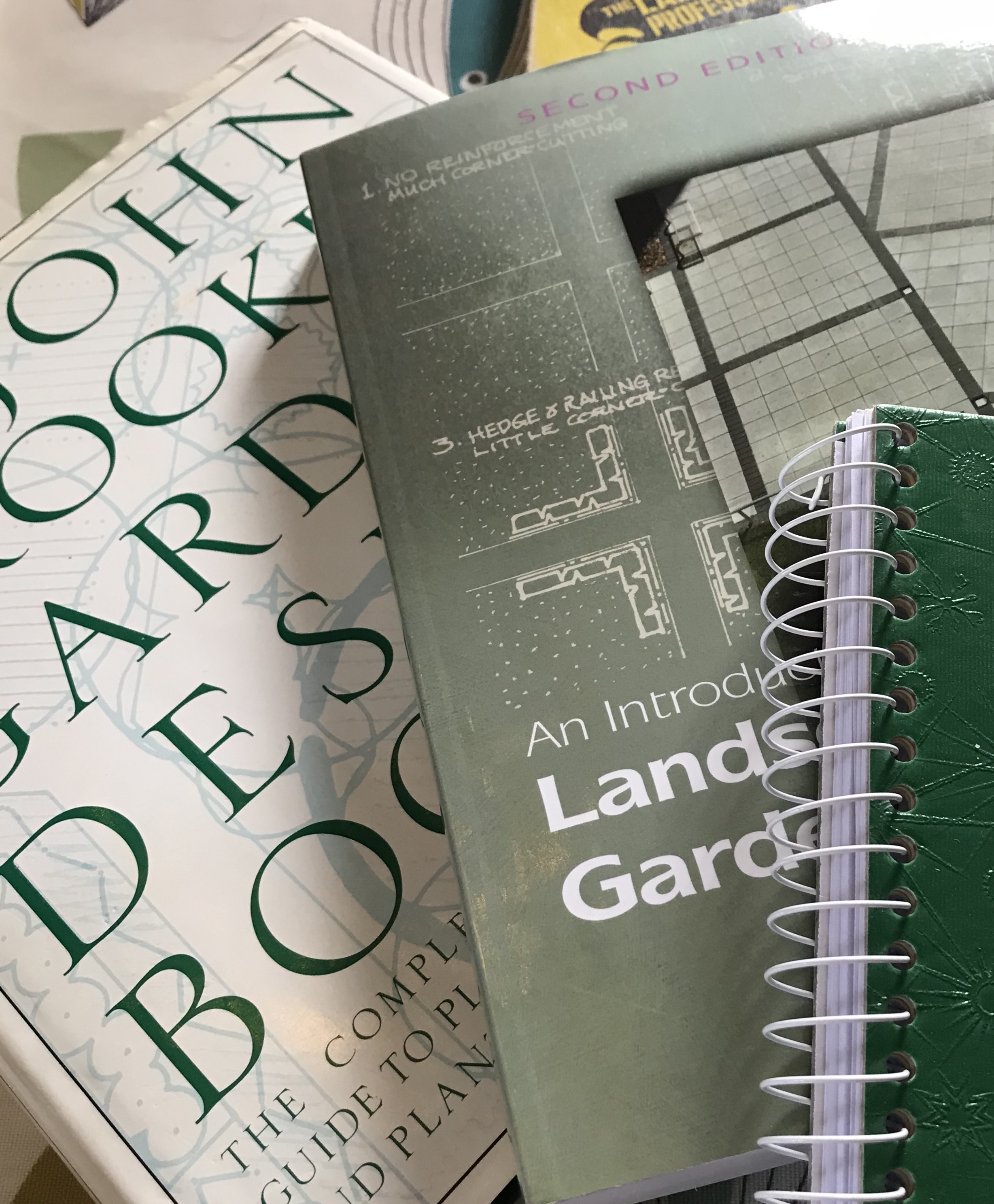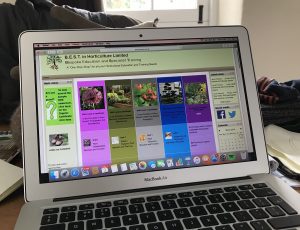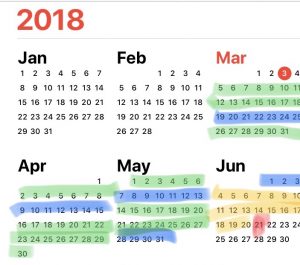Back to school – in modern times

This month I’ve signed up to start studying again. I’m going to do my RHS Level 3 Certificate in Garden Planning, Construction and Planting.
I’ve been an unusually long time deciding to take on the course and there are quite a few reasons behind that. I thought it might be useful to share for those out there who are considering taking on qualifications.
While I feel I have covered much of the content before, during my traineeship at Oxford Botanic Garden, I have decided it will be worth my while in the long run having this qualification on my CV. The additional content will also tie in nicely with the work I will be doing over the coming months, redesigning areas of the garden I work in, and considering a larger landscaping project with a designer. Having done RHS courses before, I feel sure the course will give me a good standard of knowledge and the theoretical style of learning will suit me.
I have chosen to do the course online, as distance learning with a virtual classroom. I have signed up for this with BEST in horticulture – which a colleague recommended. This will give me the flexibility to study at home, and fit in the hours when it suits me.

I would highlight these as my top considerations, which I would pass on to anyone considering taking on vocational training alongside a developing career:
Be sure of your outcome
It can be tempting to study for the sake of it, or because you have some free time, thinking that additional studying will always have a positive impact. This could be an error. Take some time to think about whether the course you are doing will get you where you need to be. Will the qualification and knowledge you gain open the right doors for you? Look at jobs you aspire to for the future and what qualifications they are asking for. Talk to colleagues or more experienced practitioners about their experience and recommendations. When you are juggling study with a job or other life demands, you need to be sure that you won’t get to the end of the course and regret your choice. After researching your options, you may find that another path leads to your goal, such as gaining more work experience, professional networking, or doing more background reading on subjects which you need to know about.
If you decide a course is the right answer, you should still proceed carefully. If time and money are tight, you might not get another chance to take a qualification (or not for some time) so it is really worth being sure you pick one which will prove to be worthwhile for your future career, even if it isn’t the one that sounds the most exciting. A few years ago I opted to spend CPD money at work on getting my PA1 & PA6 spraying certificates, even though I had spent time considering courses in garden design or garden history. The latter sounded like tempting options and I really wasn’t keen on taking training which might mean I would have to use more chemicals at work in future. However, I realised the majority of professional gardening jobs I would want called for these qualifications, and that by taking them I would also put myself more in control of when to use and, more importantly, when not to use herbicides and pesticides in a garden. The course was expensive but only involved a couple of days of study. It qualifies you for life and has proved to be an invaluable investment in terms of getting my foot in the door for jobs, and boosting my knowledge and skills. My main advice would be to choose with your head and not your heart when it comes to professional development and training.
Pick the right course
As well as considering whether the course will meet your desired outcome, you need to be sure the course suits you. Do you have the existing knowledge already to be able to follow the course, but still get enough from it? It can be tempting to tackle a more complex or high level course because you think it will advance you more quickly, but you could end up bamboozling yourself and damaging your confidence. Does the style of the course suit you? Going back to the classroom might be good in terms of motivation and support, but if you prefer to work in your own time, or need flexibility, then there are other options. If the course is theory-heavy is that what you want and will thrive on? If it is a practical course, be sure that spending the time and money to get qualified will serve you better than “hands on” time at work, or working alongside a mentor.
Do you have the time?
Short courses will invariably require dedicated time off work and you need to be sure in advance that you can be available on the specified days. Longer courses, even if not college based, can often have an on site or residential element at some stage (these courses are often referred to as Blended Learning). They may also have exams which must be attended on a particular date. So check these requirements in advance and make sure you commit to them. Distance learning can sound like an ideal option but it requires self discipline and you may still need to spend long hours studying. I know that the RHS theory courses involve a lot of intensive study. My college states I should allow 150hrs study time for the Level 3 Garden Planning course, which will equate to around 10hrs per week over the three and a half months I have until exam time. From personal experience, I know revising to meet the RHS’s quite strict requirements will take me longer than this. Check carefully what the commitments for the course are before you sign up, and plan your time, as finding yourself overwhelmed or unable to attend key parts of a course you have started can cause huge stress.

Money Money Money…
Particularly if you are footing the bill for the course yourself, you need to be sure that it is affordable, and that it represents value for money. If you know you are guaranteed to start earning more once you are qualified, then putting your money into the qualification is a worthwhile thing. If you know the course will give you knowledge and skills that you can’t get elsewhere, then it will also be a good investment. If you are short on money then you could try to look for available grants from professional or government bodies, or ask if your employer is willing to contribute to the cost (maybe on the understanding that you will carry out particular work with your newly gained skills). You should also ask the course provider about possible discounts which could be available through membership of professional bodies, or through your employer. You might also consider whether the course gives you student status and the discounts you can get on shopping, banking, some utilities, memberships and travel: these can often add up if you plan carefully.
Self Discipline
Try to set time aside for study, away from distractions, like other work, entertainment or writing blogposts….. So on that note…